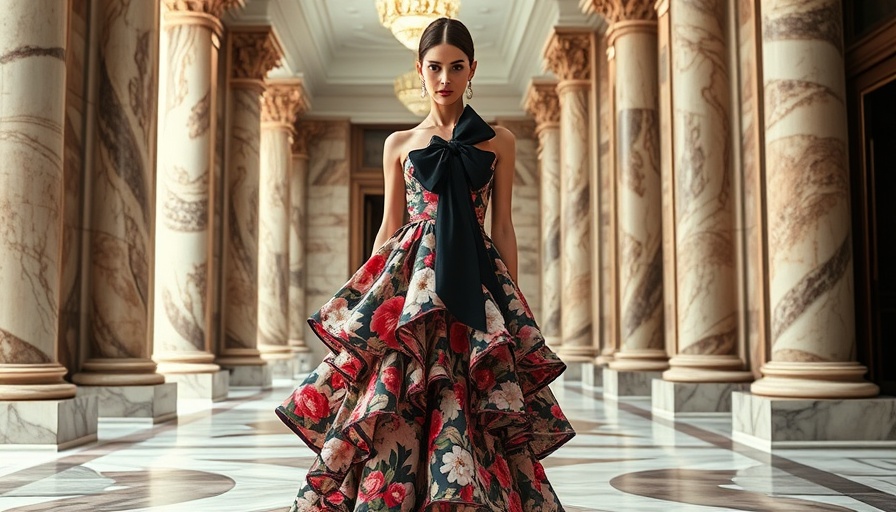
What’s Next for Marc Jacobs After LVMH?
The fashion world is buzzing with speculation as the luxury conglomerate LVMH considers selling the iconic New York brand Marc Jacobs for a staggering $1 billion. This potential move has raised numerous questions about the future of the brand, its creative force, and its place in an evolving fashion landscape.
The Landscape of Potential Buyers
In the running for Marc Jacobs are key players like Authentic Brands Group, Bluestar Alliance, and WHP Global, all of which have a history of successfully managing high-profile fashion names. Each of these entities has a unique approach and vision for brand management, which raises intrigue about how they might steer Marc Jacobs post-sale. Each potential buyer brings distinct insights into the American fashion market, emphasizing a culture-first approach that could resonate well with Jacobs’ legacy.
Marc Jacobs: A Cultural Icon
Marc Jacobs is more than just a name in fashion; he represents a cultural phenomenon. His influence has spanned decades, altering the course of contemporary style and setting trends that resonate to this day. From his revolutionary grunge collection during his tenure at Perry Ellis to his collaborative works with icons like Stephen Sprouse and Takashi Murakami at Louis Vuitton, Jacobs has continually pushed boundaries.
According to Robin Mellery-Pratt, a renowned partner in strategy for luxury brands, Jacobs' impact as a designer cannot be overstated. “Very few designers can claim to have dramatically influenced the zeitgeist in every decade since the 1980s,” he notes. This history implies that his future, whether under new ownership or staying with LVMH, will be closely watched by fashion aficionados and industry insiders alike.
The Changing Dynamics at LVMH
Under LVMH, Marc Jacobs has faced certain challenges, especially in recent earnings calls that placed less emphasis on its performance compared to its billion-dollar counterparts. With fashion sales at LVMH reportedly down by 9% in the last quarter, it's clear that even established brands must adapt to changing market conditions. Cécile Cabanis, CFO of LVMH, left room for speculation regarding the company’s future decisions about its portfolio, emphasizing that brands not meeting expectations may soon be reassessed.
The Possibility of Brand Uniformity
This potential sale could serve to create a more cohesive collection of brands under LVMH’s umbrella, which aligns with the conglomerate's strategy to establish a 'super class' of luxury. The American vibe of Marc Jacobs could be seen as a distinct departure from the European craftsmanship that characterizes many of LVMH's flagship labels. This dichotomy raises the question: could a shift in ownership allow Jacobs’ unique cultural perspective to flourish away from corporate constraints?
Potential Outcomes and Speculations
The possibilities are endless. A sale could revitalise the brand, attracting fresh investment and innovative marketing strategies that cater specifically to today’s younger, sustainability-focused consumers. Alternatively, if Jacobs remains with LVMH, it could lead to exciting collaborations or expanded product offerings that tap into the current zeitgeist.
As the fashion industry delves deeper into themes of authenticity and cultural resonance, Jacobs’ designs, which often merge art with retail, may continue to shape how brands interact with consumers. With his recent initiatives targeting Gen Z through social media and his popular sub-label Heaven, there's no denying that Jacobs has his finger on the pulse of modern trends.
Your Role in the Fashion Narrative
As consumers, we hold power over how brands evolve. Engaging with Marc Jacobs' work proactively, whether through social media, supporting sustainable practices, or simply being informed, can drive the conversation about the future of fashion. The more we express our values and preferences, the more brands will need to respond and adapt.
This evolving narrative invites us to participate in a shared future, amplifying discussions around inclusivity, sustainability, and creativity in fashion. The potential sale of Marc Jacobs may be just the kind of pivotal moment that gives rise to new dialogues in the luxury market, ultimately shaping a landscape where creativity and business acumen coexist harmoniously.
Join the Conversation
As we await further developments in the Marc Jacobs story, consider how you engage with fashion brands. What values do you prioritize in your consumer choices? Keep abreast of developments, and be part of a movement that champions change in the industry for the better.
 Add Row
Add Row  Add
Add 



Write A Comment